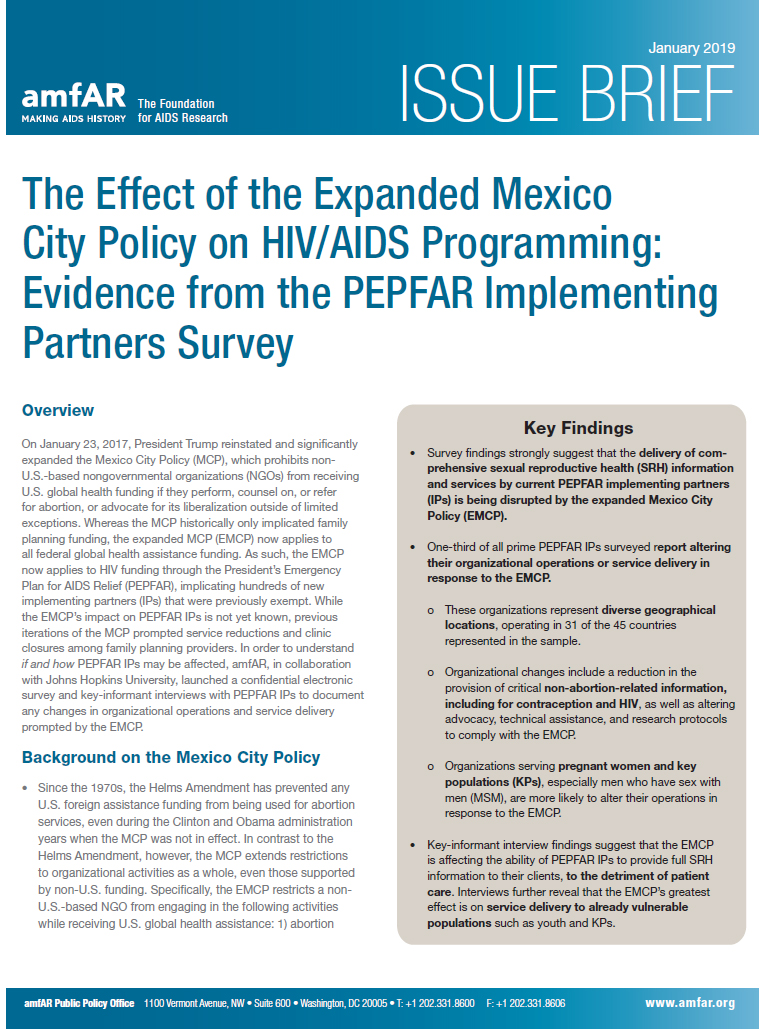The Effect of the Expanded Mexico City Policy on HIV/AIDS Programming: Evidence from the PEPFAR Implementing Partners Survey
Published on January 31, 2019
Overview
On January 23, 2017, President Trump reinstated and significantly
expanded the Mexico City Policy (MCP), which prohibits non-
U.S.-based nongovernmental organizations (NGOs) from receiving
U.S. global health funding if they perform, counsel on, or refer
for abortion, or advocate for its liberalization outside of limited
exceptions. Whereas the MCP historically only implicated family
planning funding, the expanded MCP (EMCP) now applies to
all federal global health assistance funding. As such, the EMCP
now applies to HIV funding through the President’s Emergency
Plan for AIDS Relief (PEPFAR), implicating hundreds of new
implementing partners (IPs) that were previously exempt. While
the EMCP’s impact on PEPFAR IPs is not yet known, previous
iterations of the MCP prompted service reductions and clinic
closures among family planning providers. In order to understand
if and how PEPFAR IPs may be affected, amfAR, in collaboration
with Johns Hopkins University, launched a confidential electronic
survey and key-informant interviews with PEPFAR IPs to document
any changes in organizational operations and service delivery
prompted by the EMCP.
View Infographic: How Expanded Mexico City Policy Is Disrupting Global HIV Programs
Download the full issue brief by clicking here or the image below.
